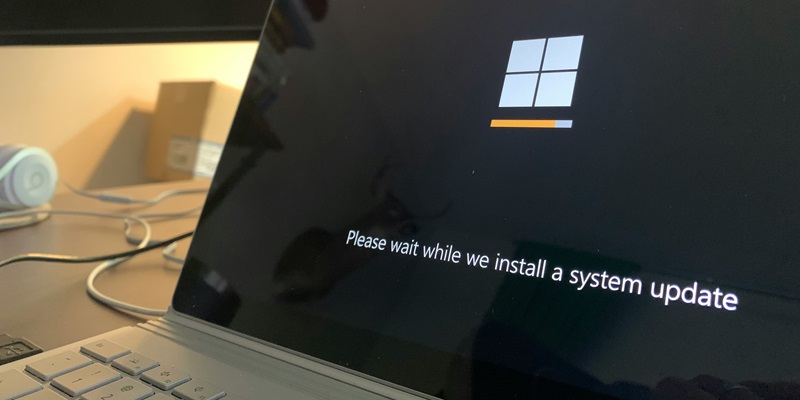Microsoft is dedicated to providing users with a seamless and reliable experience with Windows 11. To achieve this goal, the company has been actively working to identify and resolve various issues that have been reported by users. These updates aim to enhance user experience and improve system reliability, ensuring a smoother functioning of Windows 11.
Microsoft’s Response to Copilot Concerns
Copilot is a useful feature in Windows 11 that assists users with their computing tasks. However, concerns have been raised regarding the automatic running of Copilot. To clarify, Microsoft has rushed to address these fears and reassure users. They have stated that Copilot does not run automatically in Windows 11 unless explicitly enabled by the user. This clarification emphasizes Microsoft’s commitment to transparency and ensuring users have control over their computing experience.
Compliance with the Digital Markets Act (DMA)
The Digital Markets Act (DMA) is a regulatory framework in the European Economic Area (EEA) that aims to ensure fair competition and protect consumers’ interests in digital marketplaces. Microsoft understands the importance of complying with DMA requirements and has been actively working to ensure adherence. This commitment ensures a level playing field for all participants and guarantees fair treatment for users within the digital ecosystem.
Fix for 7-Zip File Issue
One of the issues identified in Windows 11 was a problem where certain types of 7-Zip files appeared as empty in File Explorer, causing inconvenience and frustration for users. Microsoft swiftly responded to this issue and released an update that addresses this problem. The fix ensures that 7-Zip files are correctly displayed in File Explorer, allowing users to access and utilize their files seamlessly.
Enhanced Reliability During Power Transitions
System reliability during power transitions is crucial for an uninterrupted user experience. Microsoft has recognized the risk of stop errors and system crashes during power transitions and has released an update to mitigate these issues. By making Windows more reliable during power transitions, users can rest assured that their systems will function smoothly without unexpected interruptions.
Improved Text Rendering for Third-Party Applications
Text rendering plays a pivotal role in delivering a visually appealing and readable experience in third-party applications. However, an issue was identified where text rendering was affected on a specific architecture, impacting the visual quality of text in various third-party applications. Microsoft promptly addressed this issue by releasing an update that resolves the problem, ensuring proper text rendering in affected applications.
Fix for WMI Issue with Mobile Device Management
Mobile device management (MDM) is crucial for organizations managing a fleet of devices, and Windows Management Instrumentation (WMI) is a vital component in this process. However, a scenario was identified where WMI stopped functioning properly with certain MDM providers, such as Microsoft Intune. Microsoft acknowledged this issue and released an update that resolves the problem, ensuring seamless integration between WMI and MDM providers.
Resolution for BitLocker Data-Only Encryption Issue
Mobile device management services, such as Microsoft Intune, rely on BitLocker data-only encryption to secure sensitive information on devices. However, a known issue affecting BitLocker data-only encryption was identified, causing data inconsistencies for certain MDM services. Microsoft acted swiftly by releasing an update that resolves this issue, ensuring the correct encryption of BitLocker data and maintaining the integrity of MDM services.
Solution for APN Profile Configuration Problem
Access Point Name (APN) profiles are essential for cellular-enabled devices to establish a network connection. However, an issue was identified that prevented the automatic configuration of APN profiles, causing inconvenience for users. Microsoft recognized this problem and released an update to address the issue, enabling automatic configuration of APN profiles and simplifying the process for users.
Fix for Trusted Platform Module Initialization
Trusted Platform Modules (TPM) play a vital role in ensuring device security. However, on certain devices, TPMs did not initialize correctly, impacting their functionality and compromising the security measures they provide. Microsoft swiftly addressed this issue and released an update to ensure proper TPM initialization, safeguarding the security of affected devices and enhancing overall system security.
Resolution for Persistent RemoteApp Windows Issue
RemoteApp windows enable users to access and interact with applications running on remote servers. However, in certain cases, these windows would persist on client devices even after they were closed, causing clutter and inconvenience. Microsoft released an update to fix this issue, ensuring that RemoteApp windows close correctly, providing users with a clean and organized workspace.
In conclusion, Microsoft’s dedication to addressing and resolving various issues in Windows 11 highlights their commitment to delivering a seamless and reliable computing experience for users. By promptly responding to concerns, ensuring compliance with regulations, and releasing updates to fix identified issues, Microsoft continuously strives to enhance the user experience and improve system reliability. These efforts contribute to a smoother functioning of Windows 11, providing users with the performance and security they expect from Microsoft’s operating system.

